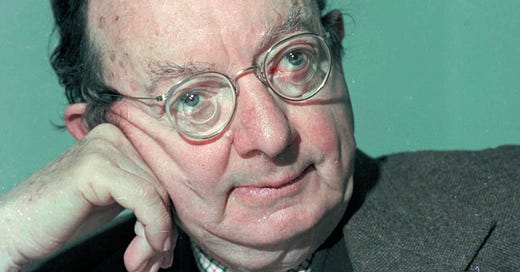
Today, the Substack team spoke to a writer about their experience with the platform. When we asked, “On a scale of 1 to 10, how likely is it that you’d recommend Substack to a friend?,” the writer without hesitation replied “10.”
This writer may be atypical. They’re having extraordinary success with Substack. But it was still a joy to hear.
We started Substack with the idea that a writer could break free from corporate-media bureaucracy and ad-incentivized churnalism to instead do their best work, the work they really wanted to do, and be supported directly by their readers. For the right writers, it would mean less drudgery, more money, and complete independence. If such a model were successful for enough writers, they could expand their businesses into empires, and it could serve as the basis for rebuilding the media on sound principles, where publishers serve readers above all else; where quality is rewarded over sensationalism; where algorithms bow to human curation; where context matters more than the headline.
At least with the publisher we spoke to today, there’s evidence that our belief in a better future for the media is not completely naive.
I’ve worked an array of journalism jobs over the course of my career. I started as the editor of my university’s student magazine, then, after graduating from journalism school, worked for a trade magazine in Hong Kong. After that, I helped launch an entertainment and listings magazine. When I moved to the US, I started as a freelancer, riding the bus from Baltimore to New York to sit around a table on the set of Blue Bloods with a dozen other international reporters so we could ask Tom Selleck about his moustache. To pay rent, I took jobs crafting copy for ad agencies that hired keyboard-jockeys to write up their submissions for awards. Occasionally, I’d write something I cared about and get it published for 60 cents a word. From there, I was lucky to get a job at a tech news site where I got a real salary but on most days still had to post two stories, which almost always lacked the rigor characteristic of the best reporting.
What was common to all these jobs was that I never quite got to be the journalist I hoped to be. I never had the freedom to focus solely on being a great reporter or writer. I always had to make compromises: edit other people’s work; do something to please advertisers; take quick-buck gigs; write something that would get clicks. I never met my full potential. And guess what: the same is true for almost 100 percent of working journalists today.
For some writers at least, Substack can change that. The tools we’re building have lowered the barriers to starting an independent publishing business. You can set up a newsletter, start writing, and be making money within minutes. Everything’s simple; everything just works. As we learn more and get better, we’ll be able to give publishers more and more useful advice so that they may create better and better products. Writers will be able to focus on the work they care about most, and readers will get something that’s a privilege to pay for.
The writer we spoke to today prized independence. They’d seen several journalistic enterprises come and go; their friends in and then out of work. But even as those outlets disappeared, readers kept following the writers they trusted. This writer felt that a subscription–based publication they alone controlled —where they owned the content and access to the audience —provided an unmatched sense of stability. For a writer, that is life-changing. Everyone else gets to benefit from stronger work that seeks not to foment conflict but to build understanding.
If helping great writers realize their independence is the one thing Substack achieves, we will be able to rest with the knowledge that we did something worthy. That’s why the “10” felt so good today.
But of course, we plan to do much more than that.



